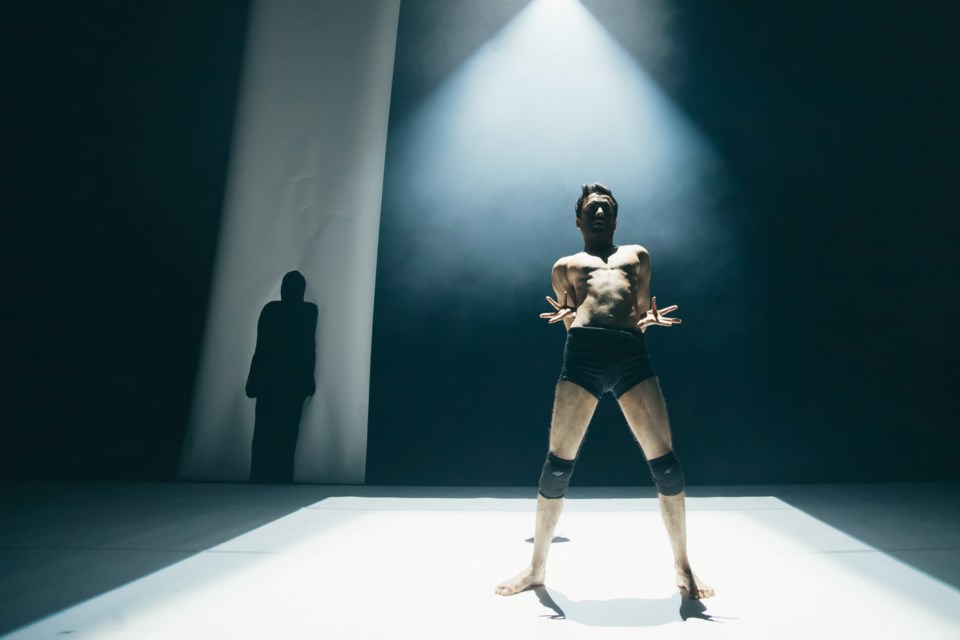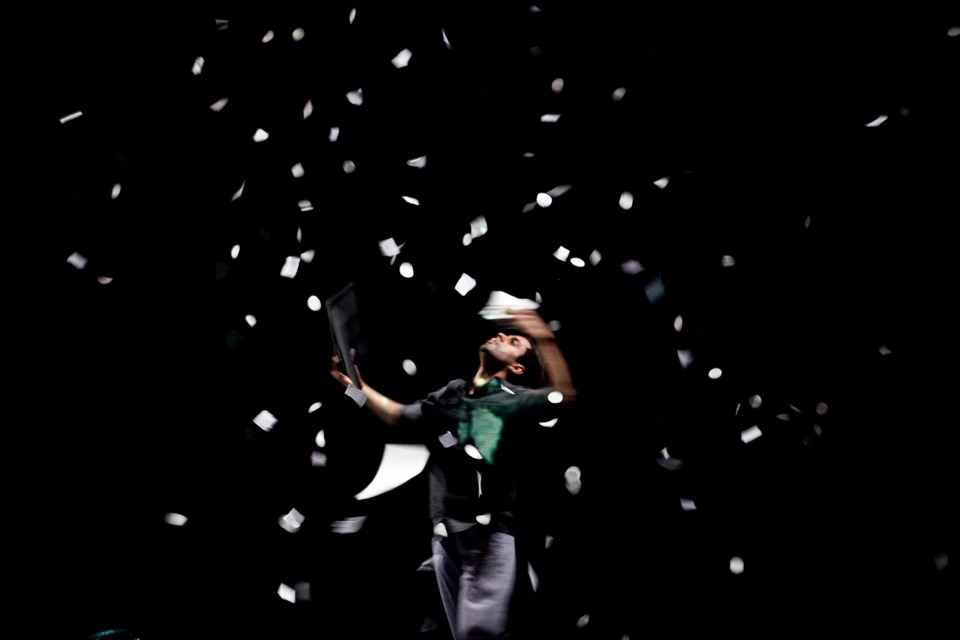When Aakash Odedra was 21 years old, he discovered his name had two As.
Prior to that, the dancer, who was diagnosed as dyslexic as a child, thought his name was spelled Akash.
Even throughout his schooling, Odedra says he and others around him unknowingly spelled his name incorrectly. It wasn’t until he was preparing for a trip as an adult that the A finally appeared.
“I had looked at my passport a million times and, literally, it appeared in front of me, which was really strange,” Odedra admits with a laugh, speaking by phone from Leicester, England. “How could you have gone through your whole life and lose the most basic, fundamental part of your personality, your identity? How could you not know that?”
When he did finally find the missing vowel, Odedra – who says he long felt defined by his reading difficulties versus his intellectual abilities – says his life began to change.
“Before that, I was almost washed away by the waves, wherever the situation took me,” he recalls, softly. “[Now], I could notice things, I could command things, rather than, you know, not having control over what I perceived or the information I got.”
The rising dance star has incorporated that, and other moments from his personal history, into a double dance bill called Inked and Murmur, coming to town as the opening show of the PuSh International Performing Arts Festival.
Odedra may not be a household name in Vancouver, but the light-footed British-Indian dancer has made waves overseas since making the switch from the classical Indian forms of kathak and bharata natyam – of which he spent 20 years mastering – to contemporary dance in 2011. That year, at the age of 27, Odedra had three solos created for him by three of the UK’s top contemporary choreographers: his mentor, the legendary Akram Khan, as well as Russell Maliphant and Sidi Larbi Cherkaoui.
With no contemporary training, Odedra literally taught himself the new movement vocabulary by performing and touring those pieces, which not only seamlessly incorporated his Indian heritage into new styles, but also cemented him as a visually stunning new performer to watch.
Two years later, after branching out with his own diverse choreography (including creating three pieces for the Queen’s Diamond Jubilee Tour, as well as a show inspired by the music of James Brown at the Apollo Theatre in New York), he co-created Inked and Murmur.

In Inked, (choreographed by Laurence Olivier award-winner Damien Jalet), Odedra first explores the impermanence of the body, using the traditional Trajva tattoos that marked the hands of his Rajput grandmother as the inspiration.
Dancing on a nine-metre by five-metre piece of paper, Odedra swirls and swoops, contorts and transforms himself to mark the space around him, and his body, with thick black ink. When finished, the audience is left with a piece of art that evokes the legacy of his grandmother, as well as Odedra’s own rite of passage.
Continuing with his own experiences, Odedra then uses Murmur to catalogue his coming to terms with dyslexia.
Through choreography by Australian Lewis Major, warped realities come to life in the deliberately theatrical performance, which at times sees Odedra frantically chasing flying paper, at others, vigorously shadow boxing. For Odedra, it captures a world where he can rarely trust what he sees.
“Visually, through the eyes of a dyslexic, when you look at a board or an object it warps, it changes, it’s dynamic,” he explains. “So if I was to look at a board, the letters would change around. Your visual interpretation of the world is different.”
The scenes are further augmented with spoken dialogue and dynamic lighting and animations, taking audiences through his early frustrations with the written language to his ultimate liberation through dance.
“Dance becomes an expression of the internal thought,” says Odedra. “Something which is deep inside you that you can’t articulate – or I couldn’t articulate – in words. And rather than going on a negative path, it sort of took me in a direction where I was able to use this tool as a positive outlet for myself.
“There shouldn’t be a negative stigma attached to dyslexia,” he adds, “because, for me, it’s a sign of intelligence and, for me, dyslexia became a blessing not a curse.”
• Inked and Murmur runs Jan. 19 to 20 at the Vancouver Playhouse. Tickets from $36; PuShFestival.ca. The PuSh Festival takes place Jan. 19-Feb. 7 at various venues around Vancouver.


